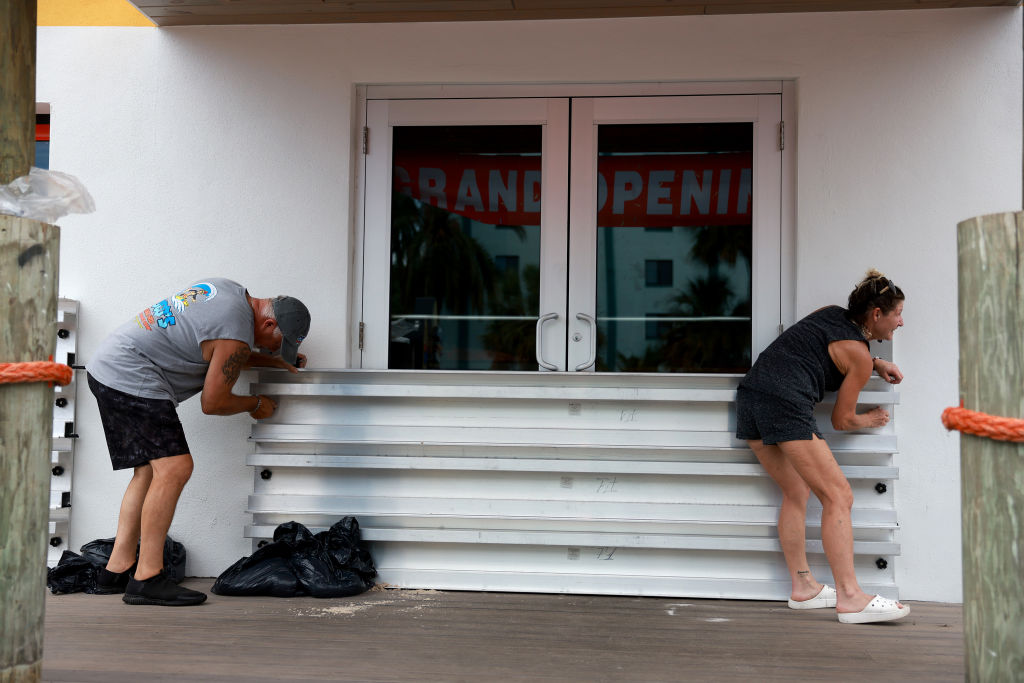
Source: Joe Raedle / Getty
WRAL reports that the Triangle could see some major rain and winds this week as Hurricane Idalia is set to make landfall.
Idalia is expected to make landfall along Florida’s west coast Wednesday (Aug. 30) between 9 and 11 AM. A storm surge of up to 12ft is possible north of Tampa.
Get Breaking News & Exclusive Contest in Your Inbox:
Locally, we could see the early impacts from Idalia starting on Wednesday afternoon. WRAL Futurecast predicts that we should start seeing strong rain at around 5 PM. The rain is expected to hang around through the evening and into Thursday morning.
We could expect wind gusts up to 35 mph with potential for flooding and power outages.
In Preparation
Gov. Roy Cooper has declared a state of emergency ahead of the storm to help prepare for what Idalia could bring:
“We are continuing to monitor Idalia’s course and its potential impacts on our state and it’s critical to make sure we are fully prepared. It is important for North Carolinians to gather emergency kits and prepare for the storm before it’s too late.”
To personally prepare for the storm, here are some helpful tips:
- Have multiple ways to receive emergency information, including watches and warnings. Make sure emergency alerts are enabled on a cell phone and download a weather app.
- Have an emergency plan. Know where to go if there’s a need to evacuate. Make a plan to stay with family, friends or at a hotel. Public shelters should be a last resort.
- Gather some emergency supplies or refresh an emergency kit. Visit ReadyNC.gov for info on how to build an emergency kit.
- If people live near or are visiting the coast, be aware if you are located in a coastal evacuation zone. Visit KnowYourZone.nc.gov to see if you are located in a pre-determined evacuation zone. Learn your zone and listen for it if evacuations are ordered by local governments.
- Never drive through flooded roadways. Turn around, don’t drown.


















